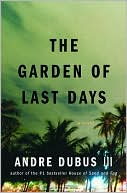 |
The Garden of Last Days, by Andre Dubus III. A novel about people at the ends of their ropes. The characters are well-developed, the story line vividly gritty and believable, but I felt let down and sleazy afterward, because apart from a secondary older-cop character no one is happy or good or has any real hope, and one main character is a terrorist. Spoiler: I didn’t realize until the end of the novel that the terrorist in question was one of the 9/11 gang. There’s a hook for you, if you don’t mind a depressing read. |
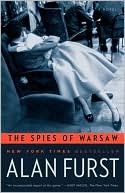 |
Spies of Warsaw, by Alan Furst. I love Alan Furst’s noir novels about WWII Europe and the men and women who did what they could to sabotage the Reich, but this one, Furst’s latest, seemed formulaic. I particularly disliked the books-for-young-adults-style historical afterword. People who are attracted to these novels have a good knowledge of history and would certainly know the broad outlines of Hitler’s European conquests, nor would they be surprised to learn that those who saw it coming were ignored by complacent superiors. |
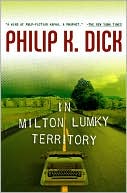 |
In Milton Lumky Territory, by Philip K. Dick. I knew Philip K. Dick as a science-fiction author, and had never heard of this early straight work. Dick’s sci-fi sensibility comes through strongly, and I suppose you could read this novella as a sort of time-travel/alternate reality story. Dick’s evocation of the American west in the 1950s is strong, reminding me of Kerouac’s On the Road. |
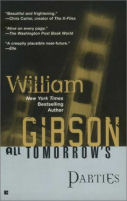 |
All Tomorrow’s Parties, by William Gibson. I love the way William Gibson ties threads together. I love his characters. I love the image of San Francisco’s earthquake-weakened Bay Bridge turned into an autonomous squatters’ republic of homes, shops, cafes, and bars, punctuated by the feral zones of Yerba Buena and Treasure Island, where few dare tread. I love Gibson’s endings. I want more Gibson! |
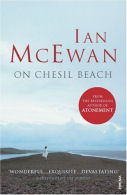 |
On Chesil Beach, by Ian McEwan. What we have here is a failure to communicate! There’s no anxiety like sexual anxiety, and Ian McEwan doesn’t flinch in making those fears come alive. Can people this repressed and naive exist? Sure they can, and do — and not just in England. Read one way, this novella is low comedy. Read another way, it’s heartbreaking. But read it we should. |
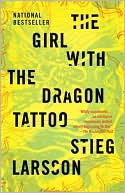 |
The Girl with the Dragon Tattoo, by Stieg Larsson. Steig Larsson, a Swedish journalist, wrote and submitted three manuscripts before his death. This one, along with The Girl Who Played with Fire, has been published and translated into English; the third, The Girl Who Kicked the Hornet’s Nest, is apparently not yet available outside Sweden. The girl, Lisbeth Salander, a sort of autistic savant, grows on you, and the novel, though I suspect the translation isn’t all that good, is a fascinating read. I want more. I wish Stieg Larsson hadn’t died so young! |
Leave a Reply